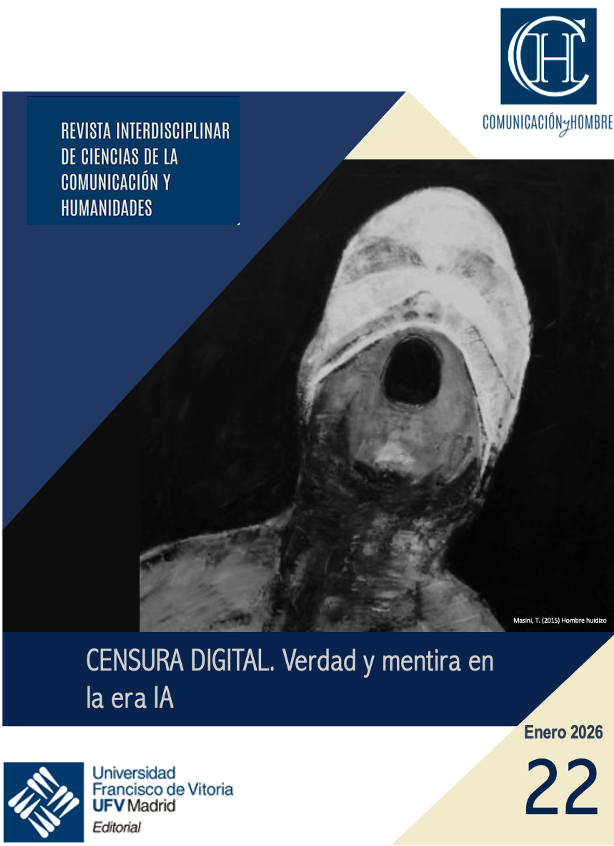AUTORES / AUTHORS
Maite Iglesias y Pilar Gimenez (coord.) EDITORIAL / PUBLISHING COMPANY Madrid, COMARES, 2021, 210 pp.
A group of professors, humanists and scientists from the Faculty of Experimental Sciences of Francisco de Vitoria University have participated in this book, which is directed and coordinated by Maite Iglesias and Pilar Gimenez.
Dr. Maite Iglesias is Dean of the Faculty of Experimental Sciences and Professor of Experimental Methodology. She currently directs the Advanced Therapies research group at Francisco de Vitoria University.
Pilar Gimenez holds a degree in Philosophy and a PhD in Journalism. Professor of Anthropology and Social Responsibility at Francisco de Vitoria University, she directs the research group on Social Responsibility, Migrations and Human Development. She is currently Vice-Dean of Integral Education in the Faculty of Experimental Sciences.
work presented here is an initiative carried out by the Faculty of Experimental Sciences and, more specifically, by the degree in Biotechnology of Universidad Francis- co de Vitoria. From the outset, the faculty has been committed to the complementarity and encounter between science and the humanities. For this reason, scientists and humanists have reflected and shared their different visions of the world and the human being, thus creating a multidisciplinary academic community.
The speakers posed open questions in two voices, asking, contrasting and refuting the great questions raised today by quantum physics, genetics and microbiology. Transhumanism, genetically modified organisms, quantum physics… What is the limit of science? Does it have answers beyond itself? How do we reconcile its enormous power with a use tailored to man? Does science have all the answers? Can it obtain a valuable return from philosophical or anthropological perspectives? How should the dialogue between the sciences and the humanities be articulated? Should limits be placed on research? Are we at a time of transformation of the human? Although there is no definite answer, the seed of inter-science conversations has been planted in the academic and scientific world.
The book begins with Dr. Javier Gómez’s reflections on the historical meaning of the university, delving into the importance of interdisciplinarity and the search for truth in the construction of science and knowledge, as well as providing interesting historical notes on the university culture of conversation.
The second chapter presents the educational model proposed by the Faculty of Experimental Sciences and the work being done to create a true dialogue and encounter between the different fields of knowledge, including the commitment to interdisciplinarity in the approach to these frontier issues in biotechnology and the humanities.
The third chapter is devoted to IV inter-science conversations. The first meeting took place between physics and philosophy. The aim was to promote dialogue between the two subjects and to try to see how these sciences responded to the epistemological question of the existence of the real and man’s capacity to know it. The second conversation dealt with the mystery of the human being and its complexity and its approach from both sciences. The panel discussed how science and anthropology coexist and seek to provide complementary answers to the existence of the human being. The third debate dealt with the power of science and technology and the ethical questions regarding their application, responsibility and limits. In this meeting, the lawfulness of scientific action and the question of ethics were raised. Finally, the fourth conversation reflected on the importance of dialogue between philosophy, theology and the experi- mental sciences.
Later on, Dr. Fernando Viñado begins his chapter by reflecting on the importance of working on an educational model that trains people integrally, recovering the original vocation of the university, an education whose aim is to broaden reason, to seek the meaning of life and to transform the world. This is followed by a new chapter that explores the humanities pathway in the biotechnology and biomedicine degree. This research was carried out by Dr. David García.
Lastly, a very interesting additional experiment is incorporated outside the Inter-Science Conversations, but which also consists of a transversal teaching project between two subjects of the Biotechnology degree, namely microbiology and education for social responsibility, work carried out by Dr. Olga Zafra, Dr. Cruz Santos and Dr. Pilar Gimenez, which has received international recognition.




